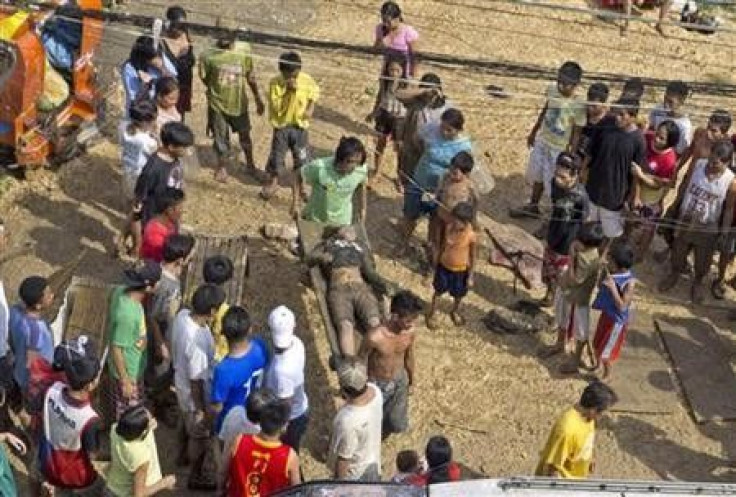Typhoon Washi Lashes the Philippines, Killing Nearly 180

A typhoon hitting the southern Philippines triggered flash floods and landslides that killed nearly 180 people and forced about 100,000 from their homes, government and army officials said on Saturday.
Typhoon Washi, with winds gusting as high as 90 kilometers per hour (56 mph), hit the resource-rich island of Mindanao late on Friday, bringing heavy rain that also grounded some domestic flights and left wide areas without power.
An Army representative, Col. Leopoldo Galon, said emergency workers had recovered 97 bodies, most of them children, who drowned in floods in Cagayan de Oro City. Seventy-five people drowned in Iligan City.
The national disaster agency said five miners were also buried in a landslide.
I can't explain how these things happened, entire villages were swept to the sea by flash floods, Galon told Reuters, saying the death toll could rise as hundreds of people were unaccounted for.
I have not seen anything like this before. This could be worse than Ondoy, he said, referring to a 2009 storm that inundated the capital, Manila, killing hundreds of people.
Television images showed bodies covered in mud, cars piled on top of each other, and wrecked homes. Helicopters and boats searched the sea for survivors and victims.
Rescue boats pulled at least 15 people from the sea, another army representative, Lt. Col. Randolph Cabangbang, told reporters.
Iligan City Mayor Lawrence Cruz said many people were caught by surprise when water rose one meter (three feet) high in less than an hour, forcing people onto roofs.
Most of them were already sleeping when floodwaters entered their homes, he said. This is the worst flooding our city had experienced in years.
The national disaster agency said it could not estimate crop and property damage because emergency workers, including soldiers and police officers, were evacuating families and recovering casualties.
The social-welfare department said about 100,000 people were displaced and brought to more than a dozen shelters in the two cities.
Six domestic flights of Cebu Pacific were canceled due to the rain and near-zero visibility in the southern and central Philippines. Ferry services were also halted, stranding hundreds of people.
An average of 20 typhoons hit the Philippines every year, often causing death and destruction.
© Copyright Thomson Reuters 2024. All rights reserved.











